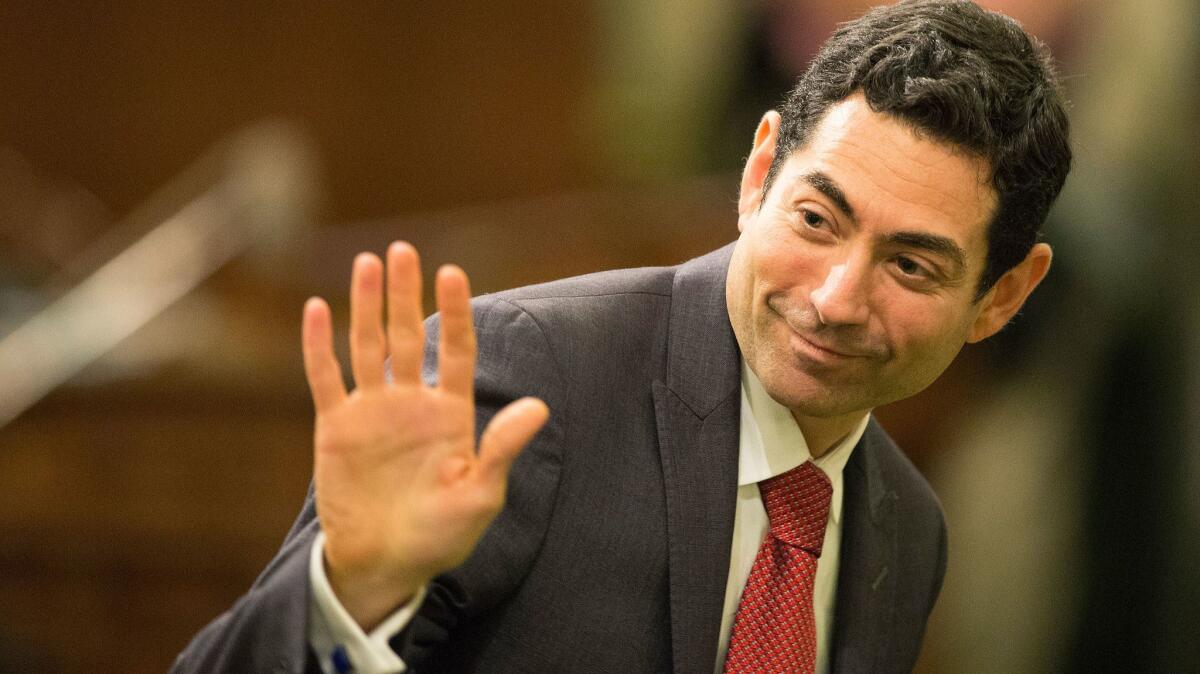Workers can’t be on call during rest breaks, California’s high court rules

Employers in California can’t keep their workers on call during short rest breaks and must give up any control over how they spend that time, the state Supreme Court said Thursday in a case that pitted labor activists against business groups.
The ruling came in a lawsuit by security guards for ABM Security Services Inc. The high court said the company’s policy of requiring guards to keep their radios and pagers on and respond to needs such as escorting a tenant to the parking lot during their rest periods violates state law.
Employers would have a “broad and intrusive degree of control” if they were allowed to keep employees on call during 10-minute rest breaks, Associate Justice Mariano-Florentino Cuellar said.
“An employee on call cannot take a brief walk — five minutes out, five minutes back — if at the farthest extent of the walk he or she is not in a position to respond,” Cuellar wrote in an opinion joined by four of the seven members of the court. “Employees similarly cannot use their 10 minutes to take care of other personal matters that require truly uninterrupted time — like pumping breast milk or completing a phone call to arrange child care.”
Ted Boutrous, an attorney for ABM, said the company was considering its options for further review.
“ABM has always been committed to providing its employees rest breaks consistent with the letter and spirit of the law,” he said.
Thursday’s ruling overturned an appellate court decision that tossed out a $90-million award in favor of about 14,000 security guards. The appellate court cited a wage order that explicitly forbids work during longer meal periods, but doesn’t include that requirement for shorter rest periods. The lower court concluded that no such similar restriction was intended for rest breaks.
Cuellar disagreed and cited a state law that explicitly forbids work during rest periods. He said keeping an employee on call, “tethered by time and policy to particular locations or communications devices,” does not relieve them of work duties as required.
Associate Justices Leondra Kruger and Carol Corrigan said in a dissent that they didn’t think ABM’s requirements for security guards during breaks constituted work.
“I respectfully disagree that such ‘on call’ requirements, without more, are incompatible with an employer’s obligation to provide off-duty rest periods under California law,” Kruger wrote for the two justices.
ALSO
Uber pulls its self-driving cars off the streets of San Francisco
Stone tests the appetite for American craft beers in the land of Oktoberfest
Why it’s so hard to get your hands on the toy your kid really wants for Christmas






